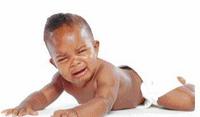Lovelette Brooks, News Editor
Beecher
Men in Jamaica, in a matter of days, are learning through sophisticated DNA tests that the children they have been faithfully 'fathering' for years are actually not theirs. The "rate of exclusion is pretty high," reveals Dr. Compton Beecher, lead scientist at Caribbean Genetics (CARIGEN), based at the University of the West Indies (UWI), Mona.
While declining to give figures, pending the results of a study being done by CARIGEN, Beecher tells The Sunday Gleaner an increasing number of men are turning up for DNA proof of biological paternity, the results of which are sometimes psychologically devastating, he says.
"On average, we handle over 65 cases per month. Many fathers make these requests out of curiosity or suspicion, others might be locked in legal battles relating to child maintenance, and others for immigration purposes," he discloses.
Preliminary analysis of all samples tested over the past two years at CARIGEN, reveals a higher-than-normal rate of exclusion. Data from a study conducted in early 2002 by Dr. Sonia King in the Pathology Department at UWI, reveals a rate of one in three. In other words, 33 per cent of all men tested were not the biological father of the child or children in their family.
study
"We strongly suspect that the figure is now higher than that, but we will not be sure until our study is completed by the end of October," Beecher reports. "We are at present tallying and analysing the number of cases we receive on a monthly basis, looking at cases of inclusion and exclusion, to arrive at some general, as well as specific conclusions," he adds.
While CARIGEN is an independent facility, DNA paternity tests ordered through the Family Court, usually for legal purposes, are done at the Government Forensics Laboratory. Head of the facility, Dr. Judith Mowatt, and her team, also bear a heavy burden conducting DNA tests.

high number of cases
"We are extremely busy here. The number of cases are high, as the Family Court orders paternity tests for a number of reasons we do the tests, we are unable to give actual figures, because the certificates are handed to police officers who forward these to the court," Mowatt discloses.
Commenting on the phenomenon of misattributed fatherhood, Dr. Barry Chevannes of Fathers Incorporated, says the practice is not new, and the seemingly high rate of exclusion does not come as a surprise.
"The fact is, when a man has an outside child, it is usually known, and, more often than not, accepted by the family, but the scenario is different when a women gives a man a 'jacket'," Chevannes states. "He suffers public shame and is often ridiculed. It is something we as a society do not take seriously; we take it as a joke. In many of the cases though, the man continues to care for the child because the bond is already there," Chevannes adds.
Jamaica, University of the West Indies 2002 study
20%
United States2000 survey
4%
United Kingdom 2005 survey
lovellette.brooks@gleanerjm.com
Disclosures could harm families
Despite the pervasiveness of the 'jacket' culture in Jamaica, very little consideration has been given to the public-health consequences of letting the 'puss' out of the bag.
According to one study conducted in Britain, the potential it poses to family break-up and paternal violence is high.
The study, conducted by Professor Mark Bellis, published in 2005, found a 1:25 paternal discrepancy in paternal tests conducted in Britain compared to Jamaica, which has a much higher ratio of 1:3.
According to the study, even with one in 25 families being affected, with two children per family, more families could be affected within just a single generation.
relationships
"The proportion of families affected will increase further when other relationships (for example between parents and grandparents) are also considered," the study states.
In addition, for every so-called 'jacket', there is a biological father elsewhere, who is often part of another long-term relationship or marriage, the study adds.
The discovery of paternal discrepancy also affects marriages or unions because of the apparent act of infidelity committed. This can increase the possibility of mental-health problems for both partners, the study states, as well as affect children who are affected by the break-up of the relationship.
But, while not all discoveries of paternal discrepancies will lead to the break-up of parents, children are forced to cope with the fact that they are related to only one parent.
"Despite many mixed family structures working well, fathers spend more time and resources on their biological children and at worst, children in families where the father is not their own, may be at greater risk of paternal violence," Bellis and his team state.
gareth.manning@gleanerjm.com

